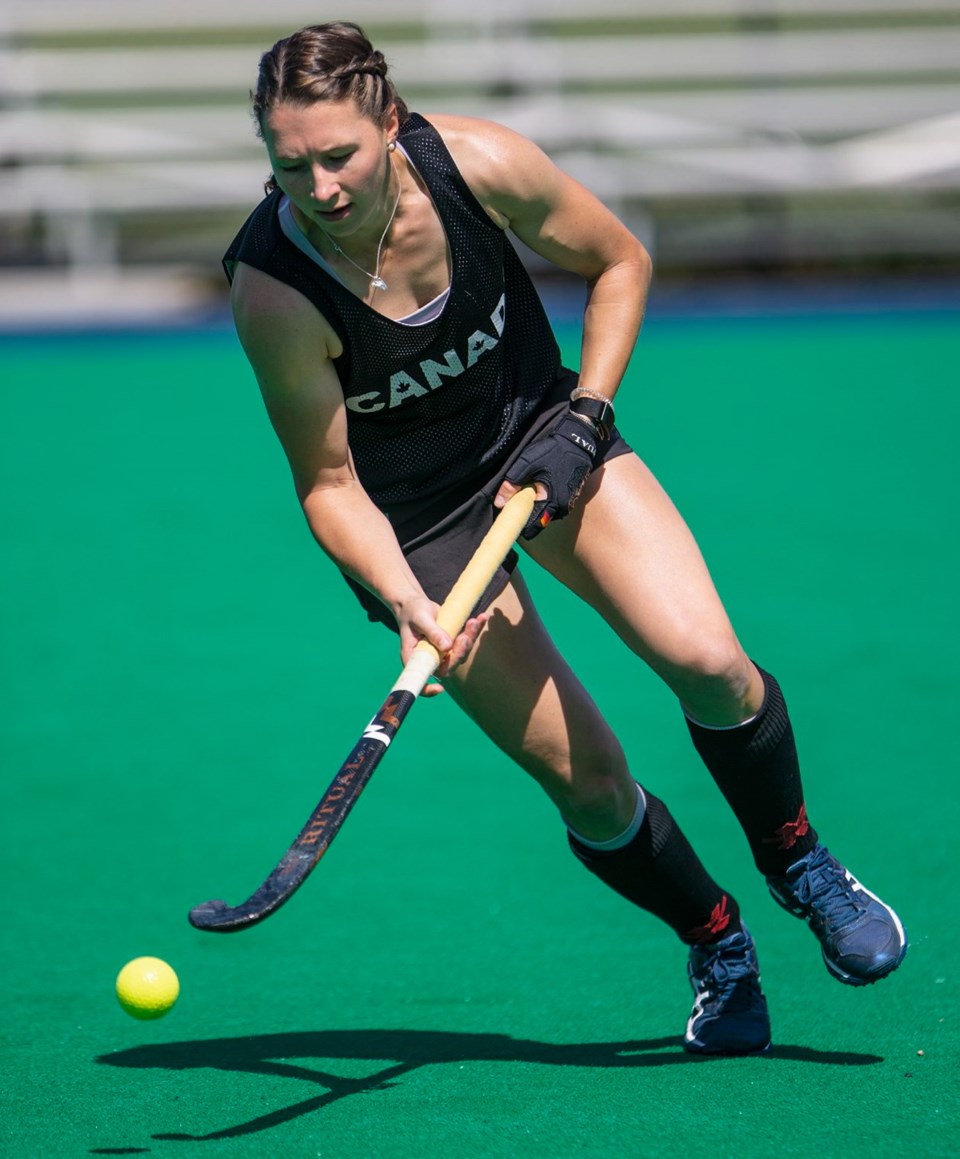The quixotic and mostly self-funded Canadian women’s field hockey quest for 2020 Tokyo Olympic qualification has been as organic as it can possibly get at such a high level of sport.
The national team is conducting a one-week training camp on the Island, thanks to support from the University of Victoria and local boosters, before heading to Valencia, Spain, this month for the second round of Olympic qualifying.
The players are being billeted by field hockey supporters throughout the region. The Canadian side, which receives no national funding as a team, raised $82,000 through an online appeal just to be able to get to Valencia. It surpassed the goal of $75,000 that was needed for travel, lodging and food in Spain.
“It was humbling and very special to receive that support from across the country,” said Canadian team player Maddie Secco of Victoria.
“Contributions came from young kids in the sport to veterans who have been playing the game all their lives,” added captain Kate Wright.
Canada has not been to the Olympics in women’s field hockey since the heavily Island-tinged Victoria and Cowichan players dominated squad at Barcelona in 1992. Prospects have never been better since then with a rejuvenated Canadian squad that has shown well recently. These Canadians appear poised to burst onto the world scene. The trouble is the national-team funding system is based on past success. But how do you get that success if you are not funded when you are on the verge of gaining it? That is the circular conundrum which needs to be addressed in Canadian sport.
“It makes no sense and I don’t understand it,” said Canadian team head coach Giles Bonnet.
“When European national teams ask how did we get here [to being a serious world contender], they can’t believe it when we tell them we have to raise our own money.”
The Canadian women’s national ice hockey team, for instance, is funded despite the fact that its many Winter Olympics and world championship medals have been won in what is basically only a two-nation competition against the U.S.
Durban native Bonnet built up the women’s national field hockey team in his native South Africa to the point it qualified for the 2012 London Summer Olympics. But his most stunning success came in building up the previously lightly regarded Belgian men’s team on the path to its breakthrough silver medal at the 2016 Rio Olympics.
“I saw that same potential in the Canadian women’s program when I was hired here last year,” said Bonnet.
“Canada has excellent female athletes in multiple sports. I believe this Canadian team can be top-six in the world.”
Then everybody will love it, including the Canadian sports funding system. But now — not after a possible breakthrough — is the nascent moment in the process where the national squad truly needs the monetary support.
“Tokyo is the big dream. But it’s also a big challenge getting there,” said Bonnet.
Joining Secco in the camp is recently called-up UVic Vikes and junior national team star Anna Mollenhauer, daughter of 1984 L.A. and 1988 Seoul Olympian Nancy Charlton of Victoria.
Canada advanced through the first Olympic qualifier last year in Mexico and will face host Spain, Namibia and Belarus in pool play in the second qualifier June 19-27 in Valencia. The top two teams in the two-pool tournament will advance to the final Olympic qualifier this fall at a site to be determined.
Another avenue is through the 2019 Lima Pan American Games, out of which the gold medallist will qualify for the Tokyo Olympics.
The Canadians, several who played the winter in the Belgian league, are entering this crucial period with confidence. Canada has 18 wins, 13 ties and three losses in its most recent Tests. The three losses were against world No. 1 Netherlands, No. 3 Australia and No. 12 USA. The wins have included beating New Zealand, Germany, Ireland, Spain, South Africa, Scotland, Belarus and France.
“Friends and family who have not seen us play recently will notice our game has changed and we are playing a more direct and attacking style now,” said veteran national team captain Wright, daughter of former Vancouver Canucks GM Mike Gillis.
NCAA Stanford grad Secco concurred: “Solid defence has always been the Canadian trademark style in the past, but now we have refined our attack.”
As part of their camp this week, the Canadian players are conducting clinics for youth players from Greater Victoria and the Cowichan Valley.



